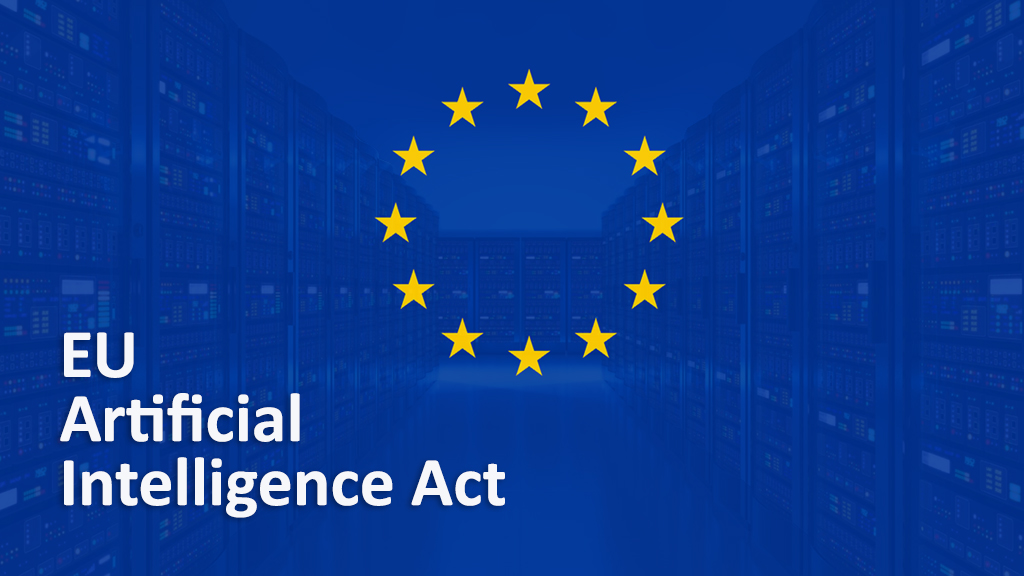Technology
Artificial Intelligence Act: Council Approves Groundbreaking Legislation

Brussels, May 25, 2024 — The European Union has taken a significant step in regulating artificial intelligence (AI) with the approval of the Artificial Intelligence Act. This landmark legislation, which follows a ‘risk-based’ approach, aims to harmonize rules on AI and set a global standard for its regulation.

Here are the key points from the AI Act:
- Risk-Based Approach: The stricter the risk of causing harm to society, the more stringent the rules. The act fosters the development of safe and trustworthy AI systems across the EU’s single market by both private and public actors.
- Categorization of AI Systems: The law classifies AI systems based on risk:
- Limited Risk: Subject to light transparency obligations.
- High-Risk: Authorized but with requirements and obligations to access the EU market.
- Prohibited AI Practices: Certain AI systems, such as cognitive behavioral manipulation and social scoring, are banned due to their deemed unacceptable risk.
- Specific Prohibitions: Predictive policing based on profiling and biometric data categorization (e.g., race, religion, sexual orientation) are also prohibited.
- General-Purpose AI Models (GPAI): GPAI models not posing systemic risks have limited requirements, while those with systemic risks must comply with stricter rules.
- Governance Bodies:
- AI Office: Enforces common rules across the EU.
- Scientific Panel: Independent experts supporting enforcement.
- AI Board: Advises and assists the Commission and member states.
- Advisory Forum: Provides technical expertise.
- Exemptions: The AI Act applies only to areas within EU law, with exemptions for military, defense, and research purposes.
- Penalties: The adoption of this act emphasizes trust, transparency, and accountability while promoting European innovation.
This groundbreaking legislation sets the stage for responsible AI development and ensures respect for fundamental rights. Europe’s commitment to balancing innovation and societal well-being is evident in this historic move.
In other AI news, Google recently combined its research teams with DeepMind, Microsoft unveiled an AI assistant for Windows 11, and NVIDIA reached a $1 trillion market cap fueled by the AI boom. As we move forward, AI continues to shape our world, and 2024 promises to be a pivotal year for technological advancements.
Technology
Calls for European Supergrid Intensify Amid Energy Crises and Climate Pressures

As Europe battles growing climate extremes, energy instability, and geopolitical pressures, momentum is building around a decades-old concept: the European supergrid. The idea, once considered aspirational, is regaining urgency amid widespread power outages and rising reliance on renewable energy.
The European Union is set to install 89 gigawatts of new renewable energy capacity in 2025, a 10-gigawatt increase from the previous year, most of it driven by solar projects. This expansion is central to the EU’s 2030 climate targets, which aim to cut net greenhouse gas emissions by at least 55 percent from 1990 levels. Yet as renewable penetration grows, so too does the need for a more integrated, resilient power network.
Recent blackouts in Spain and Portugal highlighted vulnerabilities in the continent’s energy systems, prompting experts to revisit the supergrid concept. A pan-European high-voltage grid could allow electricity generated from wind in the north or solar in the south to flow seamlessly across borders, balancing supply and demand.
“A supergrid would allow green energy to flow across borders efficiently, balancing supply and demand; it could smooth out energy highs and lows, cut prices, boost resilience, and help Europe ditch fossil fuels faster,” said Michael Ashley Schulman, CIO at Running Point Capital Advisors.
France, Germany, the UK, and Italy are already developing “mini-supergrids” — multi-terminal high-voltage DC (HVDC) networks. Over time, these could be linked like a motorway system, gradually forming a broader supergrid. Offshore grids are also gaining traction as a cost- and carbon-efficient way to integrate large-scale wind energy.
But building a Europe-wide grid is no simple task. Regulatory fragmentation, complex permitting across countries, and local opposition have slowed progress. “Stitching together dozens of national grids isn’t just an engineering project; it’s a political minefield,” Schulman noted.
Beyond logistics, some warn that the supergrid must reflect more than economic efficiency. “A supergrid must serve ecological integrity, social equity, and energy democracy — not just corporate interests,” said Therese Guttmann of Vienna’s Institute for Ecological Economics.
Critics argue that decentralised solutions and local energy systems should develop in parallel to avoid replacing one form of centralisation with another. Others caution against cybersecurity risks and systemic fragility, warning that overconnectivity could make the entire continent vulnerable to disruptions.
The European Commission estimates that €584 billion in grid investment is needed by 2030 to meet energy transition targets. While the supergrid could play a major role, analysts agree it must be part of a broader mix of infrastructure improvements and decentralised technologies.
As the continent continues to navigate a fragile energy landscape, the supergrid remains both a tantalising vision — and a test of Europe’s ability to act collectively.
Technology
Renewable Energy in Heating and Cooling: Europe’s Uneven Progress
As Europe continues to focus on energy security, especially in light of Russia’s invasion of Ukraine, renewable energy has become a key component in diversifying energy sources. The share of renewables in Europe’s overall energy use has been steadily rising, but progress in the heating and cooling sector varies significantly across the continent.
In 2023, renewables accounted for 26.2% of the EU’s heating and cooling energy, closely mirroring the overall share of renewables in total energy consumption. However, this figure masks wide disparities between countries. While Iceland leads the way with an impressive 84% of its heating and cooling needs met by renewables, countries like Ireland report just 8%. Sweden and Estonia are also among the top performers with renewable heating shares of 67%.
Several factors explain these differences, according to Professor Pawel Oclon from Cracow University of Technology. Climate conditions, resource availability, and the state of energy infrastructure all play a role. Additionally, countries with established district heating systems, such as those in the Nordic and Baltic regions, have a smoother transition to decarbonized heating solutions. These systems allow for the easier replacement of large, centralized boilers with renewable alternatives like heat pumps or biomass boilers, rather than needing to replace individual boilers across many households.
The Nordic countries, excluding Norway, dominate Europe in renewable heating. Nations such as Sweden, Finland, and Denmark boast renewable heating shares well above the EU average. Norway, however, lags at 34%, though experts suggest that this figure underrepresents the country’s reliance on renewable electricity for heating, given its vast hydropower and wind resources.
In contrast, many Western European nations have made slower progress. Among the EU’s four largest economies, only France (30%) exceeded the EU average in renewable heating, while countries like Germany (17%), Spain (21%), and Italy (22%) fell behind. These nations have traditionally relied on individual gas boilers, which complicates the transition to renewable heating systems.
Austria stands out in Central Europe, with 39.4% of its heating needs met by renewables, largely due to its longstanding use of biomass in both individual and district heating systems.
Despite some progress, experts warn that the pace is insufficient to meet the EU’s 2030 target of 49% renewable energy in buildings. “The growth is notable, but it’s far too slow to reach the EU’s climate and energy goals,” said Rana Adib, executive director of REN21, a global network promoting renewable energy.
To accelerate progress, experts call for increased investment in research and development to improve technologies like heat pumps, solar thermal collectors, and energy storage systems. Additionally, stronger policy focus, including support for electric heat pumps, decarbonized district heating, and solar thermal systems, is critical.
As Europe continues to reduce its dependence on Russian gas, the transition to renewable heating remains an essential part of the EU’s energy strategy, helping to ensure a more secure and sustainable future.
Technology
Netflix Series Sparks Debate Over Social Media Ban for Children
The popular Netflix series Adolescence has ignited fresh discussions on the dangers of social media and smartphones for children, with some calling for a ban. However, experts caution that prohibiting social media use may not effectively address the root of the problem.
A recent survey by Amnesty International revealed that 73% of Gen Z social media users in the UK (aged 13-28) have encountered misogynistic content online, with half witnessing such material weekly. The findings coincide with heightened scrutiny on social media following Adolescence, which depicts the fictional murder of a schoolgirl by a 13-year-old boy influenced by social media.
The show’s co-creator, Jack Thorne, has urged the UK government to ban smartphones for children under 16, mirroring Australia’s recent move to restrict social media access for minors. Despite these calls, experts argue that banning social media is not a viable solution.
A study published in Lancet Regional Health Europe—the first of its kind—analyzed the impact of school-based smartphone bans across England. The research found no significant improvement in students’ mental well-being, sleep, or educational outcomes. While the study only covered school-time restrictions, it casts doubt on the effectiveness of outright prohibitions.
Drew Benvie, founder of the social media campaign group Raise, warns that delaying social media exposure until age 16 may be counterproductive. “What happens when a child is 15 years and 364 days old? They suddenly gain unrestricted access without prior education on its dangers,” Benvie told Euronews Next. He also noted that children often bypass bans using VPNs, as seen with attempts to block TikTok in the United States.
Misogynistic content remains a significant concern. According to the Amnesty International report, 57% of Gen Z men in the UK have consumed content from controversial figures like Elon Musk, former U.S. President Donald Trump, and Andrew Tate. Tate, a prominent online figure, has been criticized for spreading misogynistic views, yet his content continues to circulate on major platforms.
Social media companies have implemented measures to protect children. TikTok introduced a mindfulness tool for users under 16 that activates after 10 p.m., while Meta and other platforms have strengthened parental controls. However, experts argue these steps are insufficient, as algorithms continue to amplify harmful content. A study by University College London and the University of Kent found a fourfold increase in misogynistic content suggested by TikTok’s algorithm within five days of monitoring.
Experts suggest that rather than bans, comprehensive education on digital literacy, misogyny, and misinformation is crucial. Benvie stresses that parental involvement is also key. “Parents should use these apps themselves to understand them and engage in open discussions with their children about harmful content,” he said.
While education plays a critical role, Benvie insists that tech companies and regulators must take stronger action. “Banning social media outright is not a practical solution,” he said. “Instead, we need regulation, education, and enforcement to ensure a safer digital environment for children.”
-

 Business1 year ago
Business1 year agoSaudi Arabia’s Model for Sustainable Aviation Practices
-

 Business1 year ago
Business1 year agoRecent Developments in Small Business Taxes
-

 Politics1 year ago
Politics1 year agoWho was Ebrahim Raisi and his status in Iranian Politics?
-

 Business11 months ago
Business11 months agoCarrectly: Revolutionizing Car Care in Chicago
-

 Business11 months ago
Business11 months agoSaudi Arabia: Foreign Direct Investment Rises by 5.6% in Q1
-

 Technology1 year ago
Technology1 year agoComparing Apple Vision Pro and Meta Quest 3
-

 Politics1 year ago
Politics1 year agoIndonesia and Malaysia Call for Israel’s Compliance with ICJ Ruling on Gaza Offensive
-

 Sports10 months ago
Sports10 months agoKeely Hodgkinson Wins Britain’s First Athletics Gold at Paris Olympics in 800m






























